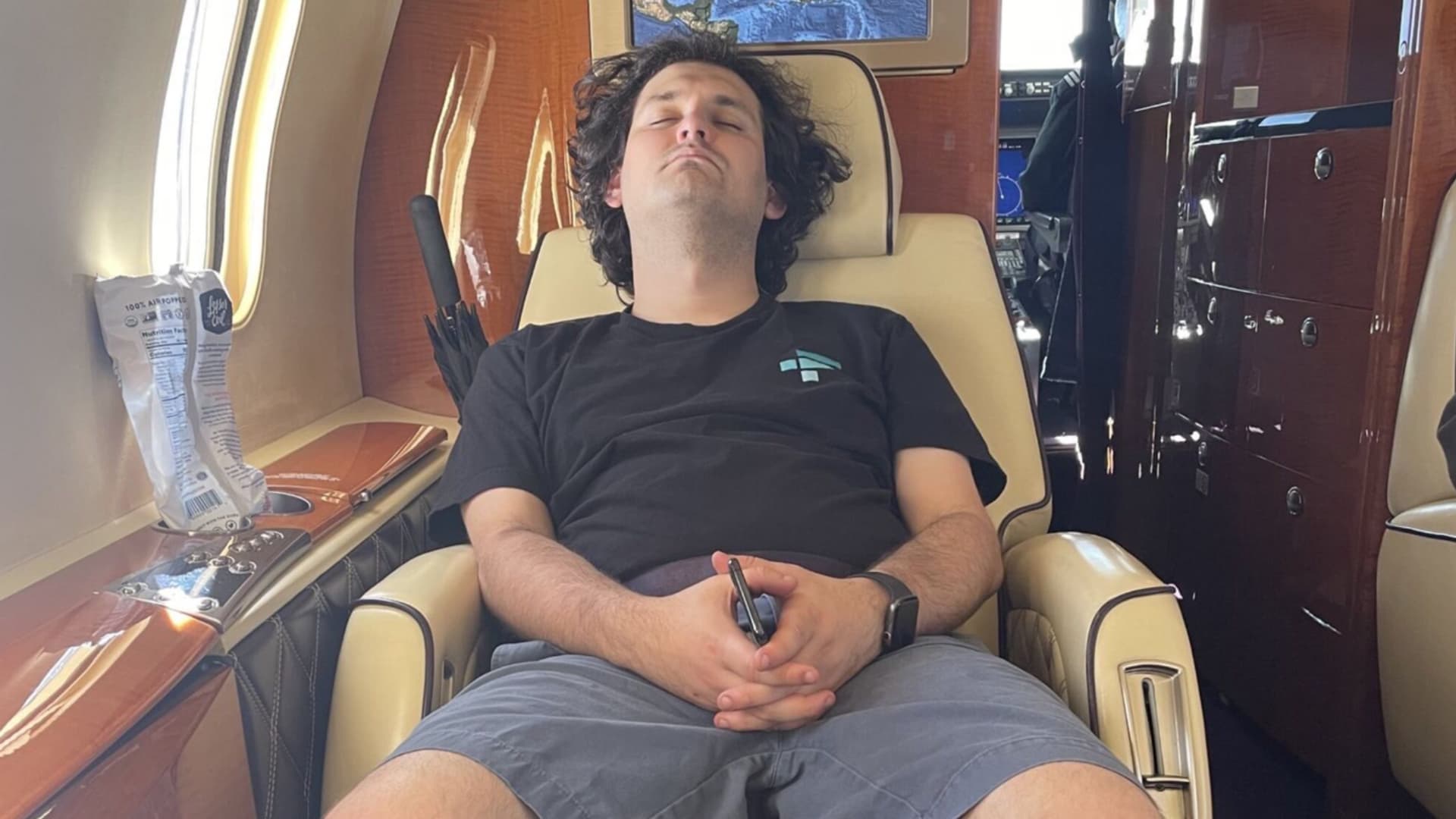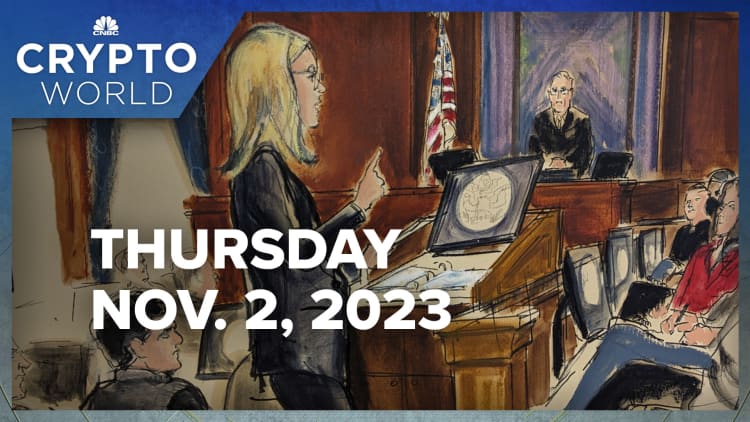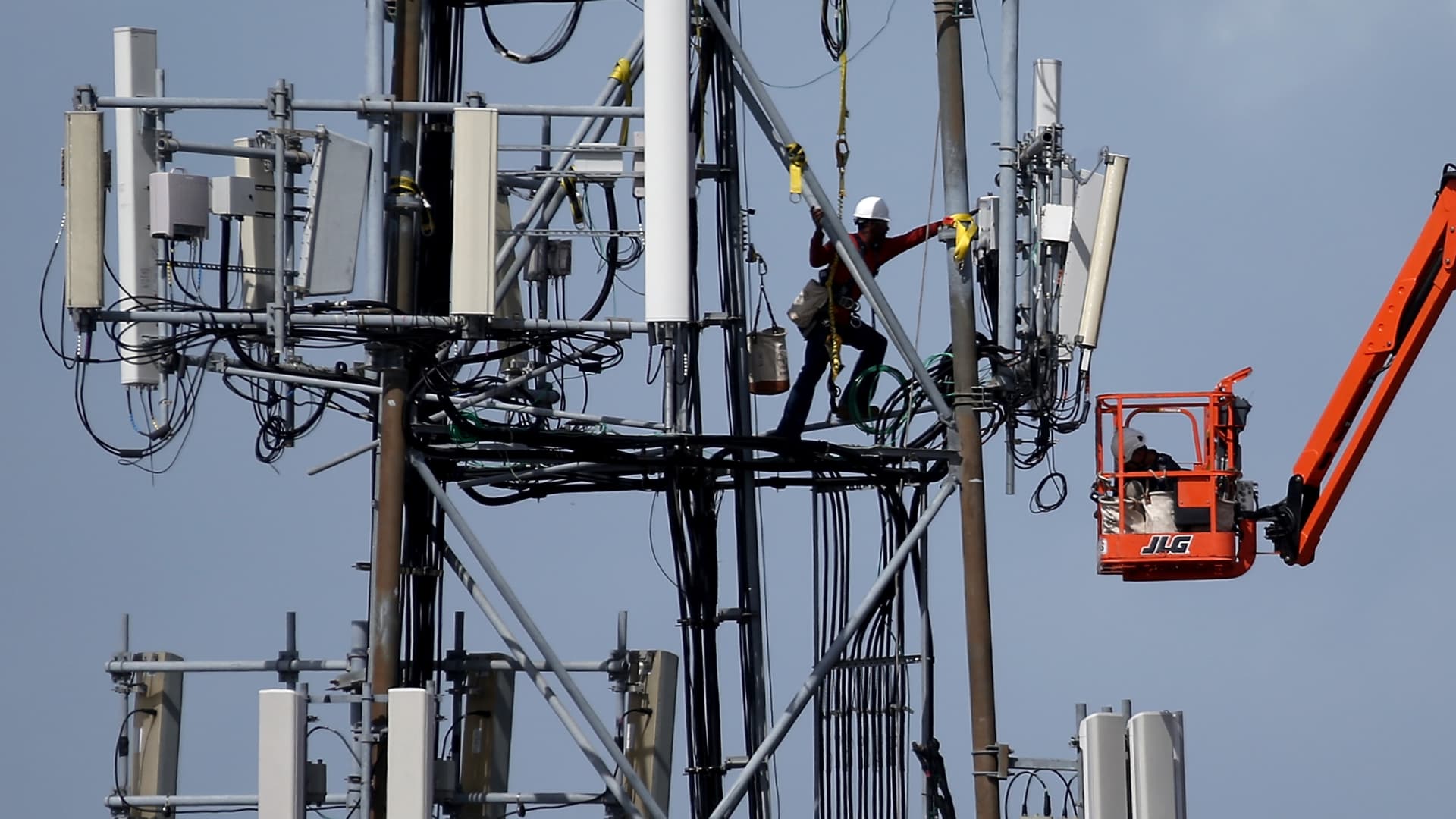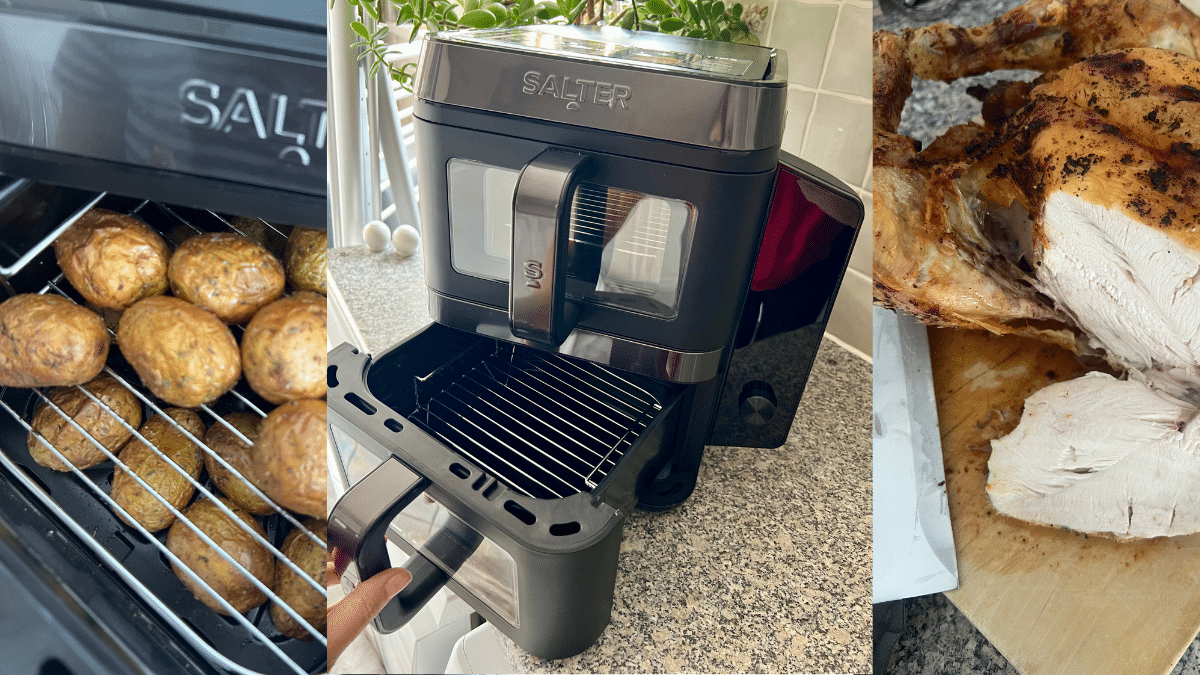
Government exhibit in the case against former FTX CEO Sam Bankman-Fried.
Source: SDNY
Over the past month, lawyers in the criminal trial of Sam Bankman-Fried have brought close to 20 witnesses to the stand and presented hundreds of exhibits to the 12 jurors who will decide the fate of the boy once deemed the king of crypto.
The jury, which began deliberations on Thursday afternoon, has a mountain of evidence to consider in determining whether the 31-year-old founder of FTX is guilty of seven criminal counts, which include wire fraud, securities fraud and money laundering. Bankman-Fried, who has pleaded not guilty to all charges, faces more than 100 years in prison if convicted.
While prosecutors were able to present the jury with testimony from members of the defendant’s inner circle, Bankman-Fried’s case rests largely on his own appearance on the witness stand.
“From beginning to end, Sam Bankman-Fried’s team failed to come up with a real game changer,” said Renato Mariotti, a former prosecutor in the U.S. Justice Department’s Securities and Commodities Fraud Section and now a trial partner in Chicago with Bryan Cave Leighton Paisner. “His fraud was brazen and difficult to explain away, and he lacked the discipline to keep his mouth shut even after it was apparent that he was under criminal investigation.”
In addition to oral testimony, the government brought in other evidence to try and prove its case and to paint a picture of an executive who got too much, too fast, and spent well in excess of his means. These exhibits include encrypted text messages, emails, promissory notes, Google docs, spreadsheets, leaked videos and photos displaying Bankman-Fried’s lavish lifestyle, including of his $35 million condo in the Bahamas.
Lawyers for the U.S. Attorney’s office entered into evidence a series of photos featuring the $35 million penthouse where Sam Bankman-Fried and his fellow co-workers resided.
Source: SDNY
$1.1 billion in promissory notes
For weeks, prosecutors have shown the jury how billions of dollars in FTX customer money went to political donations, venture investments and luxury real estate. They traced the hundreds of millions of dollars that went from company coffers to Bankman-Fried’s personal accounts.
The prosecution presented a series of relatively simple, two-page promissory notes. According to agreements signed by the defendant and Caroline Ellison, who ran hedge fund Alameda Research, Bankman-Fried borrowed more $1.1 billion in the year before his companies — FTX and Alameda — filed for bankruptcy.
Bankman-Fried admitted on the stand that there were likely more loans that weren’t properly documented, so the borrowing probably exceeded what was presented into evidence.
Government exhibit in the case against former FTX CEO Sam Bankman-Fried.
Source: SDNY
Government exhibit in the case against former FTX CEO Sam Bankman-Fried.
Source: SDNY
Government exhibit in the case against former FTX CEO Sam Bankman-Fried.
Source: SDNY
Secret emails
Much of the government’s case against Bankman-Fried hinges on the testimony, emails, and text messages from former top lieutenants who turned against him late last year.
In one email, shared by prosecutors, Bankman-Fried promised preferential treatment to Bahamian customers on the FTX cryptocurrency exchange.
In a message to Ryan Pinder, the attorney general and minister of legal affairs for the Bahamas, Bankman-Fried claimed FTX had “segregated funds for all Bahamian customers” and would be “more than happy to open up withdrawals for all Bahamian customers on FTX, so that they can, tomorrow, fully withdraw all of their assets, making them fully whole.”
The email was sent Nov. 9, one day after FTX had halted withdrawals and two days before it filed for bankruptcy. FTX users had collectively pulled $5 billion off the platform in what amounted to a bank run.
Government exhibit in the case against former FTX CEO Sam Bankman-Fried.
Source: SDNY
Two other separate email chains show that Bankman-Fried seriously mischaracterized his role at Alameda Research, according to prosecutors.
Government exhibit in the case against former FTX CEO Sam Bankman-Fried.
Source: SDNY
In a message to Rob Creamer, the CEO of Geneva Trading and chairman of FIA Principal Traders Group, Bankman-Fried wrote “Alameda has a totally separate team” that he didn’t manage.
Government exhibit in the case against former FTX CEO Sam Bankman-Fried.
Source: SDNY
Bankman-Fried wrote in an email to a Wall Street Journal reporter that Alameda’s account access “is the same as others” and that its traders don’t have “any special access to client information, marketdata, or trading.” According to the government, those claims have been debunked through witness testimony and internal company documents and text messages.
Alameda’s preferential treatment is spelled out in the two exhibits listed below. They show Alameda’s “allow negative” feature, and a line of credit on FTX that was $65 billion compared to $150 million or less for all other customers on the exchange.
Government exhibit in the case against former FTX CEO Sam Bankman-Fried.
Source: SDNY
Government exhibit in the case against former FTX CEO Sam Bankman-Fried.
Source: SDNY
Google Docs
Executives at FTX and Alameda used Google Docs and Sheets to share important financial information, according to their testimony.
Ellison would send alternative versions of balance sheets, some omitting key financials like the amount of customer funds borrowed by Alameda to cover its liabilities, to Bankman-Fried. He would then decide what to send to lenders.
Bankman-Fried would also consider larger strategy decisions in memos to his top execs.
In one memo, Bankman-Fried laid out the merits of shuttering Alameda, pointing to the “PR hit from Alameda and FTX both existing.” He wrote that, “the current Alameda leadership is good, but not good enough to be able to trust with such a big operation.”
He also wrote personal memos after the business had collapsed.
In a Google Doc dated Dec. 25, Bankman-Fried referenced the $600 million-plus stake in Robinhood he’d acquired with capital from Alameda. He wondered whether he should “try calling up the broker HOOD is with and see if they’ll just give me the shares without thinking about it.”
Government exhibit in the case against former FTX CEO Sam Bankman-Fried.
Source: SDNY
Government exhibit in the case against former FTX CEO Sam Bankman-Fried.
Source: SDNY
A big part of the government’s case revolves around the ways Bankman-Fried allegedly directed spending of money at Alameda long after he was no longer officially running the hedge fund.
In a message to FTX’s then general counsel Can Sun, Bankman-Fried pushed to get a $250 million transfer to hedge fund Modulo Capital expedited in full within eight hours. Sun later testified about the transaction under a non-prosecution agreement with the government.
Government exhibit in the case against former FTX CEO Sam Bankman-Fried.
Source: SDNY
Getting chummy with celebrities
Bankman-Fried’s chummy ties with celebrities and his enthusiasm for spending hundreds of millions of dollars on endorsement deals were areas of focus for the government.
Prosecutors showed the court a spreadsheet of investments made in 2021. They included $205 million for FTX’s naming rights to Miami’s NBA arena, $150 million to Major League Baseball, $28.5 million to NBA star Stephen Curry, $50 million to quarterback Tom Brady and his then wife Giselle Bundchen, and $10 million to comedian Larry David. The deals on the spreadsheet amounted to a total of $1.13 billion.
Government exhibit in the case against former FTX CEO Sam Bankman-Fried.
Source: SDNY
Nishad Singh, who was FTX’s director of engineering, testified that the $300 million outlay on investment firm K5 was among the most troubling. He said Bankman-Fried sent him a term sheet detailing hundreds of millions of dollars of bonuses to owners Michael Kives and Bryan Baum. That followed a K5 dinner Bankman-Fried attended alongside Hillary Clinton, Katy Perry, Orlando Bloom, Leonardo DiCaprio, and Kris and Kylie Jenner.
Government exhibit in the case against former FTX CEO Sam Bankman-Fried.
Source: SDNY
Singh said he told Bankman-Fried he was very concerned and that the K5 investment was “value extractive.” He also said he asked Bankman-Fried if the investment was made with his money or FTX’s. The spreadsheet showed it came from Alameda.
In a motion to dismiss a complaint in bankruptcy court against K5, the firm’s lawyers said the “plaintiffs attempt to make Kives and Baum complicit in SBF’s wrongdoing has no basis in fact.”
Government exhibit in the case against former FTX CEO Sam Bankman-Fried.
Source: SDNY
Leaked audio
In an all-hands meeting on the evening of Nov. 9, 2022, Alameda Research employees gathered in a circle to listen to Ellison, the CEO, who was sitting on a beanbag. She told staffers about Alameda’s borrowing from FTX, and said the exchange now had a “shortfall of user funds.”
Christian Drappi, a former software engineer at Alameda, was one of the 15 people in attendance at the meeting in the Hong Kong office. Ten others joined via video from the Bahamas.
In his testimony, Drappi described Ellison’s demeanor that night as “sunken.” He said she was “kinda slouching” and “did not display confident body language.”
In the recording of the Ellison meeting that was played for the jury, Drappi can be heard asking about FTX’s plan to pay back customers. Ellison said the company would raise money to fill the hole. Drappi asked Ellison if Alameda’s loans were collateralized through the spot margin group. She said they weren’t, and Drappi said, “That seems pretty bad.”
Caroline Ellison is questioned during Sam Bankman-Fried’s fraud trial over the collapse of FTX, the bankrupt cryptocurrency exchange, at Federal Court in New York City, U.S., October 11, 2023 in this courtroom sketch.
Jane Rosenberg | Reuters
Encrypted messages
Of the hundreds of items entered into evidence, a bank of messages on encrypted app Signal paint perhaps the clearest picture of Bankman-Fried’s alleged crimes.
One thread, dubbed “small group chat,” included Ellison, Bankman-Fried, and Joe Bankman, the defendant’s father, who advised the company on tax-related issues and other things. Also in the group were Ramnik Arora, a former product lead for FTX; Ryne Miller, who was the company’s general counsel; Constance Wang, ex-operating chief; and former FTX executive Ryan Salame.
Prosecutors are relying heavily on text messages sent among FTX and Alameda Research executives in the case against Sam Bankman-Fried.
Source: SDNY
Early in the morning on Nov. 7, the defendant put forth some “potential todos,” including halting withdrawals, sending a “confident tweet thread” and reaching out to firms such as Silverlake, Sequoia, and Apollo as they “wake up over the next few hours” to try to shore up cash.
Later that morning, Salame linked to a tweet from an anonymous crypto trader saying, “cant wait for my FTX airdrop for not moving any of my funds.”
Bankman-Fried chimed in with different ideas about how to take advantage of the post in an apparent effort to provide false hope to FTX customers that they’d receive free tokens if they kept their funds on the platform.
Prosecutors are relying heavily on text messages sent among FTX and Alameda Research executives in the case against Sam Bankman-Fried.
Source: SDNY
The next day, Nov. 8, Ellison appealed to the group for help on optics and public messaging.
She wrote, “multiple people internally asking me whether they should continue to make statements to external parties like ‘Alameda is solvent.’ should i suggest they stall instead? just stall on responding to their messages? or what?”
That’s the same day FTX issued a pause on all customer withdrawals. The price of FTT, FTX’s native token, plummeted by over 75%. Out of options, Bankman-Fried turned to Binance CEO Changpeng Zhao, who announced he’d signed a nonbinding letter of intent to acquire FTX.
Prosecutors are relying heavily on text messages sent among FTX and Alameda Research executives in the case against Sam Bankman-Fried.
Source: SDNY
On Nov. 9, Ellison again looked to the group for guidance about how to handle the now infamous all-hands meeting of Alameda’s roughly 30 employees.
She proposed saying, “Alameda is probably going to wind down” and that there was “no pressure” to stay but help with “stuff like making sure our lenders get paid” would be “super appreciated.”
Bankman-Fried suggested she say something about there “being a future of some sort for those who are excited.”
Prosecutors are relying heavily on text messages sent among FTX and Alameda Research executives in the case against Sam Bankman-Fried.
Source: SDNY
The author’s visit
Author Michael Lewis, whose book profiling Bankman-Fried was published the day the trial began, was also the subject of some Signal exchanges.
In a chat on Jan. 5, 2022, Bankman-Fried alerted a group that included Ellison and Singh that Lewis would be coming to the Bahamas the next month to do reporting.
Ellison said her “instincts are more toward under the radar.” Bankman-Fried, a notorious press hound, responded, “same, except exactly the opposite.”
As the grand scheme collapsed months later, Ellison expressed a great deal of relief in a private chat with Bankman-Fried.
Ellison wrote, “this is the best mood I’ve been in in like a year tbh” (“tbh” is short for “to be honest”).
In three consecutive messages, Bankman-Fried responded, “wow,” “uh,” “congrats?”
Ellison wrote, “I think I just had an increasing dread of this day that was weighing on me for a long time, and now that it’s actually happening, it just feels great to get it over with one way or another.”
Prosecutors are relying heavily on text messages sent among FTX and Alameda Research executives in the case against Sam Bankman-Fried.
Source: SDNY








